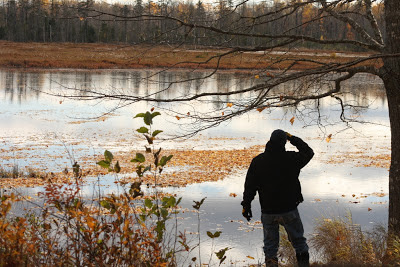I’m sitting in an airplane on a morning flight back to Halifax and the flight attendants are making their slow progress down the aisle with the drink cart and I feel like crying.
The bawl-my-eyes-out kind of crying that you just don’t want to do on an airplane.
Not because my mother and I made this quick overnight trip to Toronto for a funeral but for the 50th wedding anniversary of my Aunt Pat and Uncle Harry.
They are two of the five cousins that make up my mother’s generation. They are The Family.
Harry and Pat’s three sons planned the celebration and now between them, they have six children, ages 4 to 22. All of my own cousins are growing up, some literally, the boys now taller than me. Having to ask how old they are made me realize that I am 42 which doesn’t feel possible; I am the third youngest of this generation and everyone who seemed Grown Up when I was a kid are really only five or six or eight years older than I am. We now relate as adults with a long, shared history. Talking with them feels like I’m talking with the dearest of friends.
Aunt Mary arrived in a wheelchair because of knee surgery; she also lives in a nursing home, apart from her husband, and she was so pleased to see everyone, so surprised to see Mum and I, that tears welled up in her eyes. I thought she was going to set everyone off. After supper, while we sat together and talked, she held my hand and I could feel the gentle shake of her Parkinson’s.
This is the extended family I grew up with, my mother’s side of the family, who lived in different cities but gathered together every Boxing Day, every New Year’s Day, on Easter Sunday and once during the summer. Ask me about family and my memories are of The Family. From these aunts and uncles comes my standard for what family is: laughter and love, food and friendship, stories and stability. I know how lucky we are.
The last time I gathered with them was four years ago at Uncle Harry’s 80th birthday celebration so it was imperative to attend his 50th wedding anniversary. The photo album of the wedding day was lying on a table and looking through the pictures gave me a shock. Not because Aunt Pat looks exactly the same but because there, in several photos, were Harry’s parents, my Aunt Vera and Uncle Everett.
Aunt Vera died when I was eight and Uncle Ev has been gone for twenty years and I haven’t seen a photo of them in a very long time. Then there they were, looking JUST LIKE I REMEMBER THEM, looking alive and well and happy. As if they could walk in the door at any moment. Except they can’t, can they?
So this moment on the plane, I’m thinking of these aunts and uncles, and how I’d rather attend celebrations than funerals, then I’m thinking of those photos of Vera and Ev and of holding Aunt Mary’s hand and of Uncle Neb making jokes about his upcoming colonoscopy which reminds me of the time 15 years ago when this crowd got telling stories about their childhoods together and Uncle Harry laughed so hard, tears streamed down his face and eventually he gave up trying to wipe them away.
For better or for worse, we are molded by the company we keep. Some of us get really lucky and fly through life with families who make us laugh and cry, who stuff us full of food and advice, whose memories remain vibrant no matter how long they have been gone. Leaving that extended nest, whether for a home down the street or a place across the country, is not easy, especially as we get older...and the aunts and uncles get older.
It is very hard to live far away from family. No matter how many photos and stories we pack into our bags, nothing replaces a hand to hold.

























